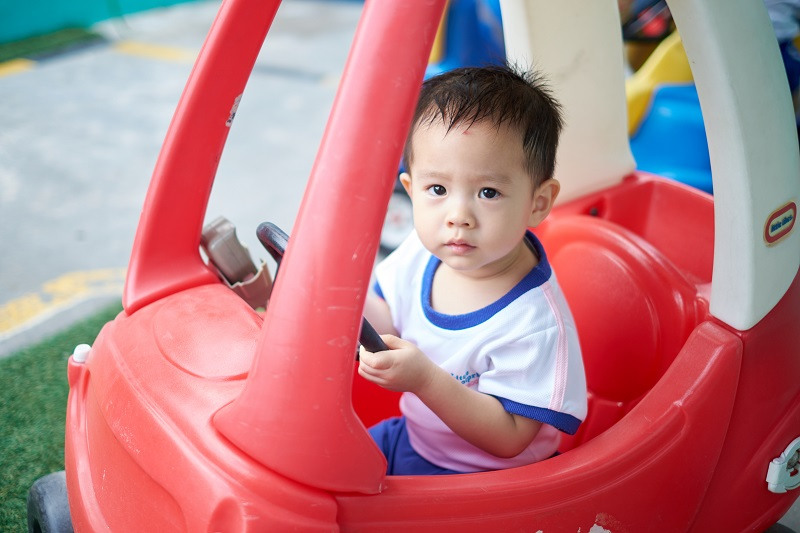
Emotions are an inherent part of us as human beings.
Our preschool children experience emotions like fear, excitement, happiness, and frustration from a young age. Teaching children about emotions – how to recognise and express their emotions in a healthy manner, is part and parcel of growth and helps them to integrate into society.
Your baby starts out with little clues about social cues or emotional awareness. By the time they are 3 years old, they can correctly label and recognise emotions in appropriate situations.
Shahana Knight, child mental health expert says that “identifying your emotions and learning how to manage them is one of the most important skills” parents can impart to their children.
When your preschool child can recognise and understand their own emotions, they are able to express themselves and communicate more effectively with the people around them. This emotional intelligence leads to empathy and the ability to build rapport and trust, or what we also call interpersonal skills to forge strong relationships.
Emotional Milestones for Preschool Kids
Children develop their emotions by observing how adults around them respond to emotionally challenging situations. Preschool children learn about emotions in stages.
As your preschooler discover complex emotions like jealousy, anger, and sadness, they are also beginning to understand relational concepts like caring and sharing, showing affection for others and how to interact with their peers.
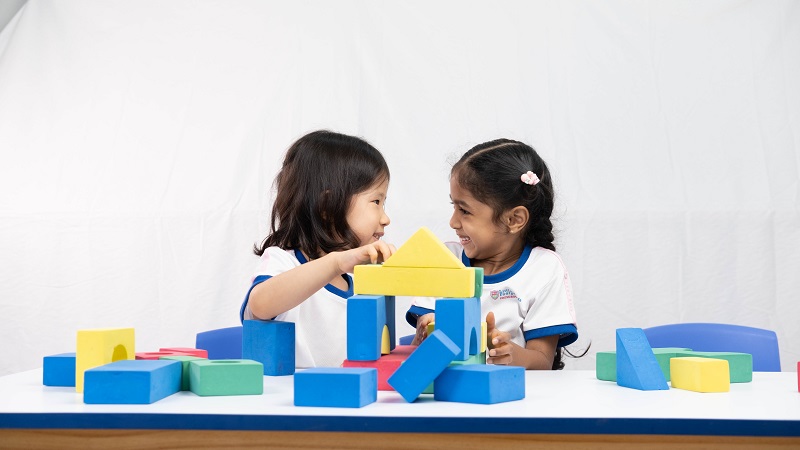
Your toddler (2-3 years old) normally demonstrates extremes in behaviours as they explore their emotional range – aggressive or calm, helpful or stubborn. Tantrums are common at this age as they struggle to control their emotions. At this age, they are capable of recognising right and wrong, begin to show feelings of pride or sympathy and are able to play alone or alongside others but won’t share.
As your child progresses into preschool (4-5years old), he/she is normally happy and contented but may have imaginary friends to blame when things go wrong. Your preschooler is still experimenting with the management of their emotions. They may range from calmness when stopped from doing an activity to aggressive outbursts such as biting, kicking, and throwing objects.
Your young child may still have fears such as separation anxiety, especially at drop-off or bedtime. They may fear the dark or being hurt and worry about their parents not being available for them. Assurances and repeat positive outcomes usually do the trick to improve their confidence.
When your child is ready to progress to primary school (7 years old and over), parents are less central as they become more involved in school life and friends.
If you need help to cultivate strong emotional awareness in your child before heading to primary school, this is where the Vitamin C specialised programme in Little Footprints Preschool’s curriculum comes to play.
Designed to groom your child’s self-esteem with an emphasis on good values to help him/her on their life journey, your child will pick up life-long values such as self-control and patience through a series of engaging activities.
Tips for Parents to Help Kids Identify and Express Their Emotions
Other than being our preschooler’s first role models, cultivating emotional awareness is a great opportunity to connect and bond as parent and child. At Little Footprints Preschool, we firmly believe in developing a positive sense of self in our children and helping them to build positive relationships with their peers, family and the community.
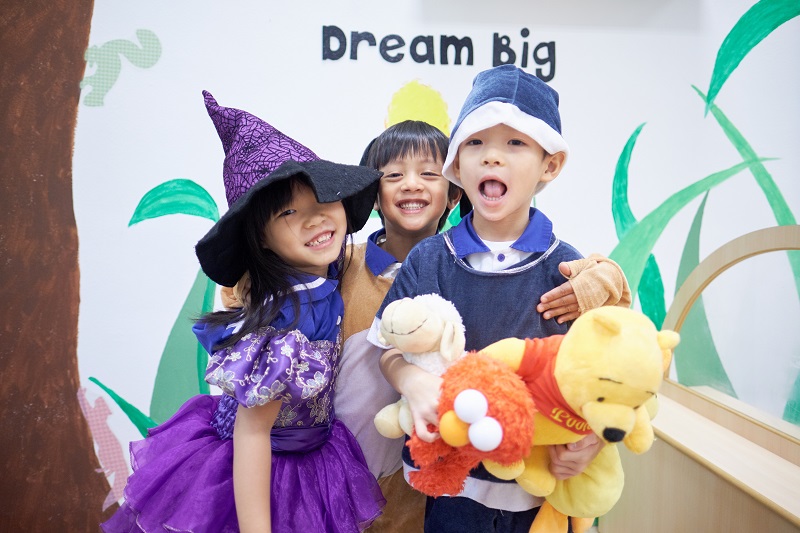
As parents are our partners in education, we encourage you to work with your children to build up their social-emotional development before and during their time in preschool with the following tips:
1. Name the feeling
Help your child to be aware of the emotions he/she is feeling and label that feeling.
- “What a big smile! You’re happy!”
- “Wow! That’s cold!”
- “That was not nice! You are angry.”
2. Play the “If you’re happy and you know it” game with different feelings
This game is fun and offers kids ways to handle their big feelings. The following are some examples, but you can create your own fun way to help your child act out their feelings.
"If you're happy and you know it" - clap your hands
"If you're mad and you know it" - stomp your foot
"If you're sad and you know it" - cry a tear
"If you're hungry and you know it" - rub your tum
"If you're tired and you know it" - give a yawn
3. Tell stories about your child’s feelings to help make sense
This exercise allows your child to process the different feelings and appropriate reactions to the feelings. Through this, your child will discover that all feelings are ok, and to manage the reactions or behaviours to the feelings.
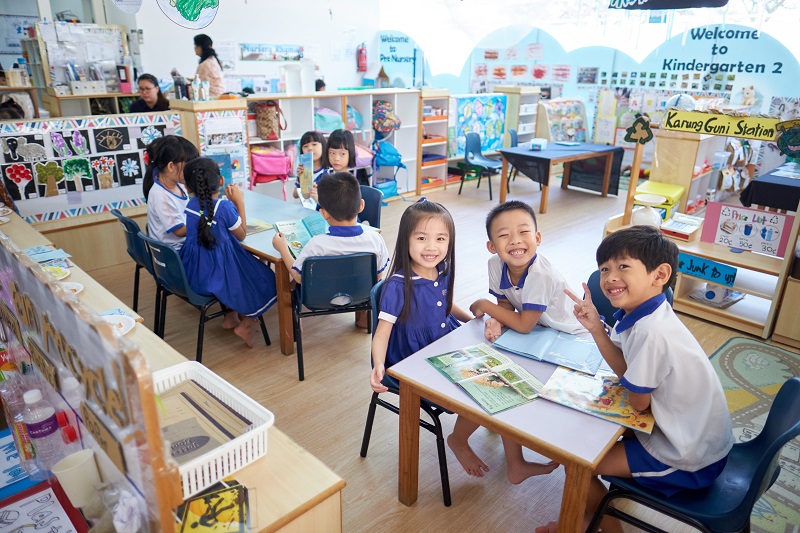
4. Wonder about the feelings of others
Research shows that when parents "wonder" with their toddlers and preschoolers what an infant sibling is feeling or thinking, the child turns out to be nicer to the baby a year later. The “wondering” seems to help young children develop empathy.
"See that boy holding his little sister's hand? I wonder how he feels being a big brother?"
"That little girl is crying.... I wonder why she's sad...."
5. Read books about feelings.
There are plenty of books about feelings to help your child identify and cope with their emotions. How are your feeling today by Molly Potter is one of our favourites.
Book a tour with Us!
Come talk to us about how we can help your child develop emotional intelligence at your preferred Little Footprints Preschool centre.
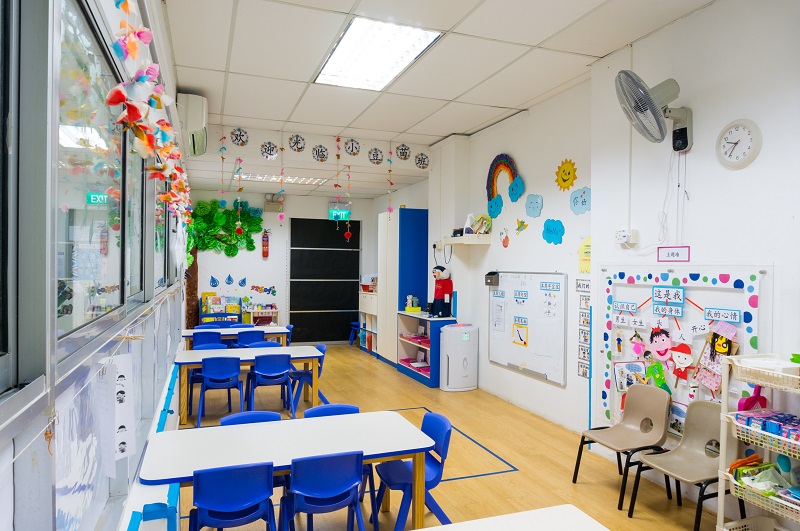
We have centres island wide. Book a tour today at the centre most convenient for you and let us be a part of your child’s early childhood education journey.
Follow us on social media to stay updated on our latest updates and happenings:




